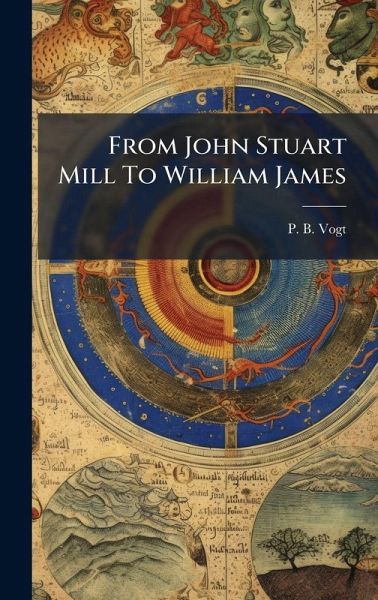
From John Stuart Mill To William James
Versandkostenfrei!
Versandfertig in über 4 Wochen
25,99 €
inkl. MwSt.

PAYBACK Punkte
13 °P sammeln!
Explore the intellectual landscape of the 19th century through the works of two seminal thinkers in "From John Stuart Mill To William James" by P. B. Vogt (O.F.M.). This study delves into the philosophies of John Stuart Mill, the champion of utilitarianism and individual liberty, and William James, the pragmatist and psychologist who emphasized experience and the will to believe. Vogt traces the evolution of philosophical thought, highlighting the connections and divergences between Mill's rationalism and James's more experiential approach. Ideal for students of philosophy, history, and anyone...
Explore the intellectual landscape of the 19th century through the works of two seminal thinkers in "From John Stuart Mill To William James" by P. B. Vogt (O.F.M.). This study delves into the philosophies of John Stuart Mill, the champion of utilitarianism and individual liberty, and William James, the pragmatist and psychologist who emphasized experience and the will to believe. Vogt traces the evolution of philosophical thought, highlighting the connections and divergences between Mill's rationalism and James's more experiential approach. Ideal for students of philosophy, history, and anyone interested in the development of modern thought, this work offers valuable insights into the minds that shaped our understanding of knowledge, ethics, and the human condition. This work has been selected by scholars as being culturally important, and is part of the knowledge base of civilization as we know it. This work was reproduced from the original artifact, and remains as true to the original work as possible. Therefore, you will see the original copyright references, library stamps (as most of these works have been housed in our most important libraries around the world), and other notations in the work. This work is in the public domain in the United States of America, and possibly other nations. Within the United States, you may freely copy and distribute this work, as no entity (individual or corporate) has a copyright on the body of the work. As a reproduction of a historical artifact, this work may contain missing or blurred pages, poor pictures, errant marks, etc. Scholars believe, and we concur, that this work is important enough to be preserved, reproduced, and made generally available to the public. We appreciate your support of the preservation process, and thank you for being an important part of keeping this knowledge alive and relevant.


